He’s in trouble, thought Winston. Well, good. He deserves it. I won’t go help him. Winston had seen the damage Dillon had done. Buildings destroyed, people turned mad. When they had parted ways, Dillon claimed to be repentant—claimed that it was all because of the dark parasite that had leeched onto his soul. But how much of it was the beast, and how much was Dillon? Winston found it hard to have any sympathy for him.
In the bathroom, his mother bandaged Thaddy’s feet. Winston watched her, marveling. She had been out of her wheelchair for almost a year now. Winston’s touch, which had once been the cause of her paralysis and all forms of stunted growth, was now responsible for making her get up and walk. His curse under the tyranny of his parasite had turned into a blessing once that thing was dead: a gift of growth in every sense of the word.
“Heard you thrashin’ in your covers even before the window broke,” his mother said, finishing up on Thaddy. “Must have been some fright you were having.”
I won’t go help Dillon, Winston told himself.
“Just a dream,” he told her.
“Guess that’s what you get for sleeping in.” His mother never probed for details. Winston had never spoken of his experiences out west to her, and she had the wisdom not to ask.
They ate breakfast quietly, Winston’s mind full of heavy, distracting thoughts. He knew his mom could read the troubled look on his face.
“You know, I’ve been thinking of putting the house up for sale,” Mom said. “Too much bad blood between us and the neighborhood, anyway.”
Winston shook his head sadly. Folks around town, hadn’t known what to make of him before, and now they surely didn’t. But that was okay. Winston had grown to understand them a bit better now. Their fears. Their superstitions.
“Momma,” he said, before he knew the words were coming from his mouth. “Momma, I gotta leave.”
His mother took a deep breath. It had become her habit to take Winston’s pronouncements in stride.
“I suppose it was only a matter of time till you outgrew this place,” she said. “Although I didn’t think it would be so soon.”
“Stone ain’t outgrown it,” chimed in Thaddy. “His feet don’t hang off the end of the bed or nothing.”
Winston chuckled. “That’s not what she means, Thaddy.”
In the year since coming back home, Winston had found himself driven to think. To learn. He had pulled down all of his father’s dusty books—the ones his father had treasured—and he read them all. “Education is a black man’s greatest ally against injustice,” his father had been fond of saying. He kept a fine library that was left to his wife and sons when he died. Books of science and art, great literature and world history. Volumes on philosophy. Great thinkers, with grand thoughts. Winston downed all he could at home, at school, at the library. He hadn’t come up with any grand answers to the mysteries of life yet, but now at least he felt he knew some of the questions. He had grown to know how much he didn’t know.
But that wasn’t why he had to leave.
I won’t head west. He struggled to convince himself. I refuse to help Dillon Cole. But there was a gravity pulling on him now. He knew he could resist it, but didn’t know if he should.
Thaddy just looked down, his thoughts buried in his cinnamon toast. Winston’s mother took a long look at Winston, with a certain wonder in her eyes. He let her have her moment. To be honest, he felt kind of teary- eyed himself.
“I know you’ll do great things for this weary world,” she said. “I’ve got faith in that.”
A few hours later, he kept her faith cloaked around him as he boarded the bus alone toward all points west, and Dillon Cole.
***
Three hundred miles away, the yolks of a dozen eggs oozed through their smashed shells, blending with the milk, Gatorade, and maple syrup that spilled forth from their ruptured containers. Everything in Tory Smythe’s arms had fallen to the ground in the wake of her sudden vision, and now the polished white floor of the spotless convenience store was a disaster of running colors and wildly clashing aromas.
Max, Tory’s boyfriend, surveyed the mess. “That’s not good,” he said lamely. “I told you we should have taken a basket.”
The clerk ran out from behind the counter, his face stricken, as if someone had unexpectedly died in the aisle. “Look at this!” he shrieked. “How could you be so clumsy, you stupid, stupid girl!”
He ran to the back room to get a mop. Tory was pale, unsteady. She gripped the handle of the glass refrigerator case to keep her balance.
“Are you okay?” Max asked.
She was shivering from the cold, although it wasn’t cold.
She was recoiling from the touch of their hands, but no one was touching her.
She was screaming, but it wasn’t her voice she heard—it was—
“Dillon!”
Her boyfriend eyed her uncomfortably. The clerk returned with the mop, bucket, and about a gallon of Lysol. “Stupid, stupid girl,” he said again, in case Tory hadn’t heard him the first time.
Tory grabbed Max’s hand, hoping his steady fingers would keep hers from shaking. “Let’s go.”
“But... the shopping list,” he said, “Your mom can’t make breakfast without—"
“Just forget about the damned list!”
Max gasped, and ripped his hand from hers. “Tory!” he said. “What’s wrong with you?”
Tory sighed. “I’m sorry,” she told him. She grabbed his hand again, and he reluctantly clasped his fingers around hers.
Behind them the clerk had mopped up much of the mess, yet continued mopping at the same, maniacal pace, as if the spill were acid that would eat through the linoleum. Tory knew he would mop and mop until nothing was left to mar the purity of his clean white floor. It reminded Tory of the way she bathed. Compulsively scrubbing to pull away dirt she knew wasn’t there, but still felt all around her. These days, her skin was cover-girl smooth, instead of oozing with open, infected sores as it had been a year ago. Now her hair had a fine blonde sheen, instead of being a matted greasy mess. She had been cleansed beyond any shadow of doubt, but sometimes she could still feel the filth, like a ghost, and the only way to get rid of it was to wash and scrub. The way this ridiculous man scrubbed at his clean floor.
Tory couldn’t watch, so she left, pulling Max along with her.
The Sunday-morning streets of the neighborhood were full of people walking hand in hand. Children played games, the elderly sat on benches feeding exceptionally healthy pigeons. A Cuban couple smiled at a group of African-American teens on the corner, and they waved back. A Korean man walked a little Anglo girl across the street.
“It’s a nice morning,” Max said.
“Yes,” said Tory. “Nice.” The fact was, every morning was “nice” in her neighborhood. The streets were clean, the alleys were free of grunge, and anyone who didn’t pick up after their dog was reported by the Neighborhood Watch—which everyone belonged to. The neighborhood was safe, spotless, and uncorrupted. Strange, because this part of town was called “the Miami Miasma” and was the worst neighborhood of the notorious Floridian metropolis.
“What happened back there?” asked Max.
What happened? thought Tory. I think I got a wake- up call from an old friend. But all she said was, “I guess I slipped on the floor wax.”
A policeman strolled past them, grinning. But when he took a look at Tory’s feet, his expression changed to one of suspicion.
“Hmpf,” he said, eyeing Tory warily as she passed.
Читать дальше
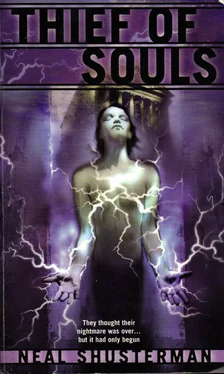
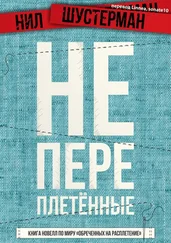

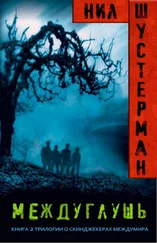

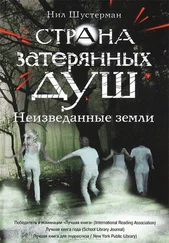
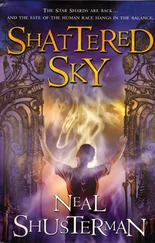
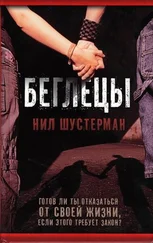
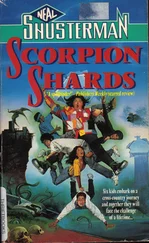



![Нил Шустерман - Жнец [litres]](/books/418707/nil-shusterman-zhnec-litres-thumb.webp)